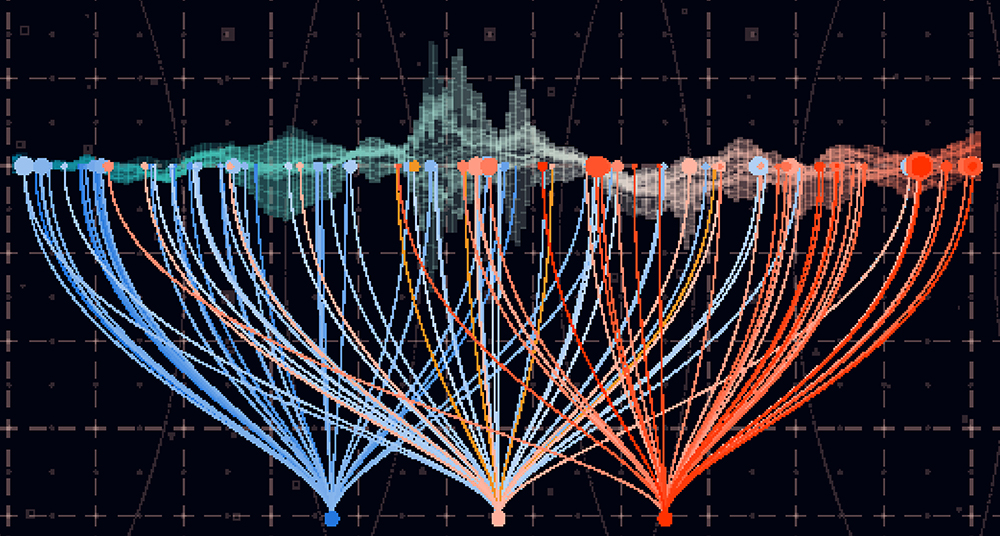
A sure signal that the IoT is about to further explode in today’s news from the Linux Foundation’s Zephyr Project that tech giants Google and Facebook have joined as platinum members.
While other companies, including Intel, Nordic Semiconductor, NXP, and Oticon also jumped into the platinum pond, it is the arrival of a multinational technology company (the largest in the world) and a social network (the largest in the world) that is most intriguing, but in fact, given both company’s ambitions to deepen relationships and engagement with users it makes sense.
Connect things, harness big data generated by those things, improve those things, and sell more things – and services.
According to the Zephyr Project’s press release, “Google and Facebook have selected the Zephyr Real-Time Operating System (RTOS) as one of the key technologies that will be used to build their next-generation of infrastructure and products. They will collaborate with other Platinum members of The Zephyr Project, an open-source project at the Linux Foundation that builds a safe, secure, and flexible RTOS for the Internet of Things (IoT) in space-constrained devices, including Intel, Nordic Semiconductor, NXP, and Oticon to ensure IoT security and critical safety challenges.”
“Google believes in building secure products for all of our users, and we are excited to join forces with Zephyr to develop a secure real-time operating system,” said Puneet Kumar, Director of Engineering, Chrome OS. “The Zephyr Project has built a strong community of experts, and we look forward to working with all of the participating organizations to improve the state of the RTOS our products depend on.”
Facebook has a long history of open-source investment. They recently joined the Linux Foundation at the Platinum-level and are actively involved in multiple open source communities in the semiconductor space.
“Facebook is pleased to support the Zephyr project, which shows great promise in accelerating the pace of RTOS innovation," said Ric Wheeler, Engineering Manager. Olof Johansson, Engineering Director, adds that "The project’s focus on establishing neutral governance, encouraging a diverse development community, and the attention to security will help create a thriving and sustainable open-source ecosystem around Zephyr. We are excited to be part of that."
It is encouraging to see the security aspects highlighted by all companies and Zephyr as connected things become increasingly pervasive in billions of homes, connected cars, in public spaces, buildings, and more.
“The data being collected by these devices needs to be kept secure,” said Kate Stewart, Senior Director of Strategic Programs at the Linux Foundation. “Zephyr supports lightweight communication of encrypted data, as well as an infrastructure for addressing any vulnerabilities uncovered in the future."
Developers have to carefully select an RTOS, so they don’t experience delayed release dates, hundreds of thousands of dollars in remediation efforts, faulty usability, and a negative experience for end-users, according to the Zephyr Project.
The Zephyr community also today announced the latest release, 2.4 is now available. This release expands support for product makers by adding infrastructure to support the use of commercial toolchains, the more testable TCP2 stack now the default, and adding support for virtual memory management.
In addition, the Bluetooth host support has been extended to include periodic advertisement and isochronous channels. There is now support for ARM Cortex-M1/M3 DesignStart FPGA and NXP i.MX RT685, i.MX8M Mini, and LPC11U6x, as well as a variety of other board and shield updates.
As part of the diverse Zephyr ecosystem, members participate in an open governance that practices principles of transparency, participation, and accountability.
“Open source communities that practice transparency, encourage active participation, and recognize contributors will thrive, evolve, and deliver the strongest outcomes for the project,” said Joel Stapleton, Zephyr Project Governing Board Chair and Technical Product Manager at Nordic Semiconductor. “The level of support new members bring deeply benefits our community, and we look forward to seeing Google and Facebook’s contributions to the Zephyr ecosystem.”
In addition to Google and Facebook, the Zephyr Project welcomes the FIWARE Foundation and its project Micro-ROS to its community. They join Adafruit, Antmicro, Eclipse Foundation, Foundries.io, Intel, Linaro, Nordic Semiconductor, NXP®, Oticon, SiFive, Synopsys, Texas Instruments, and more to create an open hardware and software ecosystem using the Zephyr OS.
“We are excited the Zephyr Project and Micro-ROS are collaborating to integrate resource-constrained devices seamlessly into the ROS 2 (Robot Operating System) ecosystem,” said Jaime Martin Losa, CEO of eProsima. “Micro-ROS is an open-source robotic operating system which bridges extremely resource-constrained platforms to more complex robotic architectures of ROS 2, the de facto standard robotic framework. We look forward to bringing our expertise to the Zephyr ecosystem as we complement each other to easily create heterogeneous distributed robotic systems.”
As part of Facebook joining the Zephyr community, Olof Johansson and Ric Wheeler will join the Technical Steering Committee.
Arti Loftus is an experienced Information Technology specialist with a demonstrated history of working in the research, writing, and editing industry with many published articles under her belt.Edited by
Ken Briodagh





